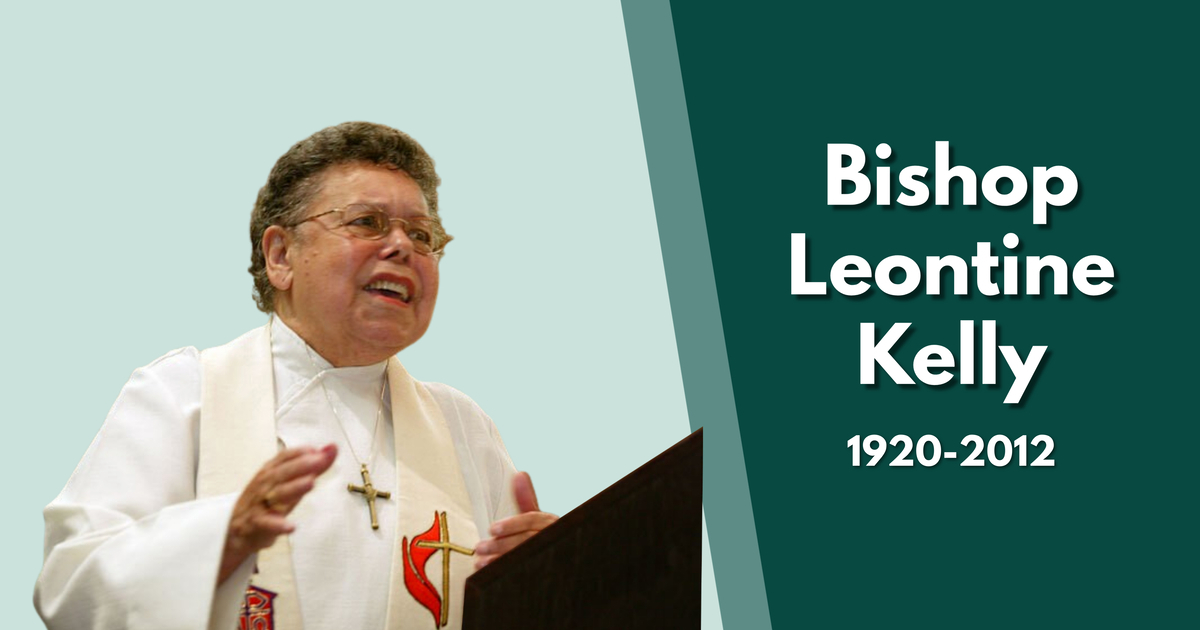We celebrate Black History Month as a time to revisit our roots and highlight persons of faith who have responded to God’s call and provided leadership for the Church. A description of a courageous leader is one who will accompany us to a place we would not go by ourselves. Bishop Leontine T.C. Kelly was such a leader.
Her beginning was challenging, although exciting, being born into a family of eight children in Georgetown, Washington DC, in 1920. Starting with her nurturing parents, she grew up surrounded by persons who gave strong leadership in the black community. Her father, Rev. David Turpeau, was a dynamic Methodist pastor and also served four terms in the Ohio State House of Representatives. Her mother, Ila Marshal Turpeau, was the founder of the Urban League of Cincinnati and was a persistent advocate on behalf of women and blacks.
From an early age she was influenced by African American women to give her life in service to God and God’s people. As a teenager her role model was the secretary of the community YMCA she attended. Then she met Dr. Mary McCloud Bethune who asked the profound question which would focus the rest of Leontine’s life, “Young lady, what do you plan to be?” Bishop Kelly would recall “I just knew she was somebody. She became my hero because she was an amazing woman.”
Through higher education Bishop Kelly prepared for her vocation as a public school teacher. Although her first marriage ended in divorce, she would always say her first two children were God’s blessings from the relationship. She eventually married Rev. David Kelly, a United Methodist pastor, who died a few years into their marriage. At that time she was a Certified Lay Speaker and demonstrated the spiritual gift for preaching and being a pastor. Several months later she would respond to God’s call to pastoral ministry and enroll in seminary. She was ordained an Elder in 1977.
Bishop Kelly continued to serve as a local pastor and then as a minister in the Virginia Conference and later in the denominational Board of Discipleship. In 1984 she was elected by the Southeastern Jurisdictional Conference to be a bishop – the first African American female, not only in The United Methodist Church, but all other Christian denominations. She would later be inducted into the National Women’s Hall of Fame. Her death occurred at 92. Her life and ministry can be celebrated with her own words of faith: “I am blessed beyond my wildest imagining in all the gifts and opportunities God has given to me.” Retired Bishop Sharon Brown Christopher testified how Bishop Kelly shaped the lives of others. “She has been the spiritual mother of many clergywomen. Her feisty, God-centered spirit is embedded deeply in our souls and will continue to form and instruct us.”

